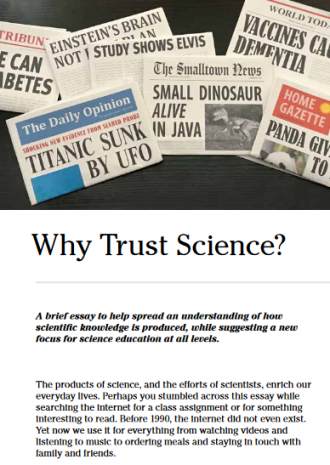The recent COVID pandemic dramatically demonstrated how protecting human lives requires that we all follow the best science advice concerning vaccines, drug treatments, and reducing disease spread. More broadly, for humanity to thrive, it is crucial that the public give considerable weight to the consensus judgements of the scientific community. Scientific judgements are not merely what scientists happen to believe, but correcting such misunderstandings will require that science education focus on teaching how these judgements are actually produced through the remarkable, community based human invention that we call science.
This brief essay aims at help spreading an understanding of how scientific knowledge is produced, while suggesting a new focus for science education at all levels.
The essay highly recommends the IAP Teaching Resources, which are translated in multiple languages and available here.
The IAP Science Education Programme is the result of a global effort and emphasizes inquiry-based science education (IBSE).
Behind the essay is a website that has been created to aid in the process of understanding science and how it evolves: www.whytrustscience.org.uk. The website now contains a set of carefully selected, free Teaching Tools.
See below for translations into Spanish, French, Italian and Persian.
About the Authors:
Bruce Alberts is the Chancellor’s Leadership Chair in Biochemistry and Biophysics for Science and Education, Emeritus, University
of California, San Francisco. He was the editor-in-chief of Science magazine from 2008–2013, and served as President of the U.S. National Academy of Sciences from 1993 to 2005. Read his profile here.
Karen Hopkin received her PhD in biochemistry from the Albert Einstein College of Medicine and is a science writer. She is co-author of the textbook Essential Cell Biology and a contributor to Scientific American’s daily podcast, Science, Quickly.
Keith Roberts received his PhD from the University of Cambridge and is currently Emeritus Professor at the University of East Anglia. He is a co-author of the textbook Molecular Biology of the Cell.
Why Trust Science Report Translations:
